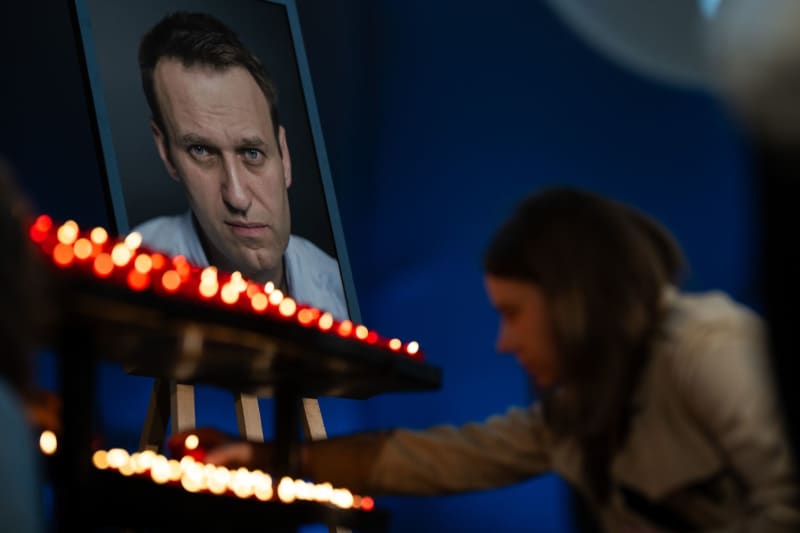Supporters of Alexei Navalny laid flowers on his grave in Moscow on Sunday, one year after the Russian opposition activist’s death in a penal colony in the Arctic Circle.
Independent media reported that police had permitted entry to the Borisovskoye Cemetery, but filmed the proceedings. Human rights activists warned of the risk of arrest due to his anti-corruption foundation being classified as “extremist” and banned in Russia.
Among the visitors to the grave were foreign diplomats, including US Ambassador Lynne Tracy and EU Ambassador Roland Galharague, media reports said.
Memorial events were also held in other Russian cities, including St Petersburg and Yekaterinburg, media reported. In the city of Novosibirsk in Siberia, at least five people were arrested at a memorial event, the civil rights project OWD-Info said.
In Germany, Navalny’s widow, Yulia Navalnaya, also invited people to a memorial evening at the Kaiser Wilhelm Memorial Church in Berlin.
She shared personal memories of their lives together, telling attendees, she lived with a great person. “All those years, it was as if we had only just met.”
“Of course, this year has been very difficult for me,” she said. The couple have two children.
Navalnya has been trying to continue her late husband’s work in exile, though she said this was not something they had ever discussed, though they were aware of the threat to his life.
“My political mission is to see Vladimir Putin’s regime end quickly,” she said, as hopefully, she could then return home to a normal and democratic Russia. “I dream of returning.”
She called on opponents to the Russian government who have emigrated to demonstrate, mentioning March 1 in Berlin. “Wherever we are, we must take to the streets for the people of Russia. They can’t take to the streets. We have to be their voice.”
Earlier in a post on Instagram, she said no day had passed during which she had not thought of Navalny, consulted with him in her mind and also discussed with him. “I love you very much. I miss you greatly.”
In December, Navalnaya launched a competition to design a memorial to be erected on her husband’s grave in Moscow.
Hundreds of ideas were submitted, mostly from Russia but also internationally. Earlier this month, Navalnaya called for a vote on three shortlisted designs and for donations for the construction of the stone monument. The final design is set to be revealed on Sunday.
Navalnaya said in a video message that the monument would not only be a place of rest or remembrance: “It will be a place of hope and strength for all those who believe in its principles and dream of a beautiful Russia in the future.”
One of the most prominent opponents of President Vladimir Putin, Navalny was poisoned in 2020 ahead of regional elections in Siberia. He was flown out to a Berlin hospital, where nerve agent poisoning was diagnosed.
Once recovered, he returned to Russia and was immediately arrested on charges relating to a previous failure to report to the authorities.
A court later sentenced him to nine years on charges of fraud and insulting a judge. A further trial on a charge of extremism, which Navalny termed politically motivated, increased the sentence to 19 years.
Navalny was detained in a penal colony in the Arctic Circle, where he died under suspicious circumstances at the age of 47. The circumstances of his death have not been clarified.
Read the full article here
